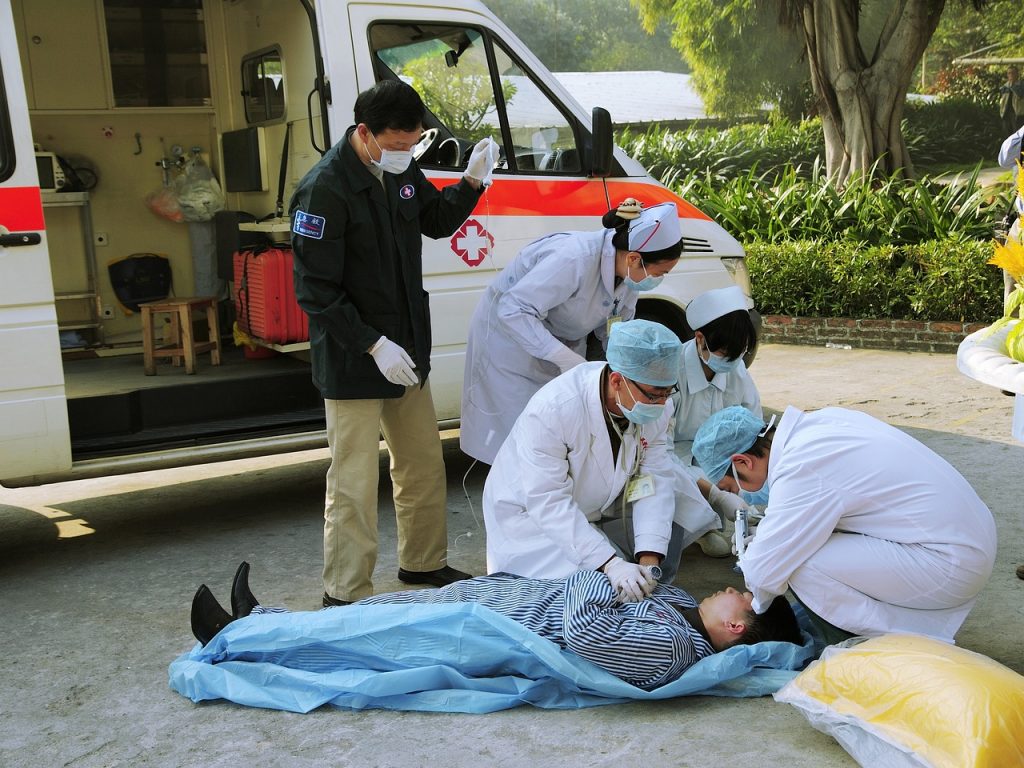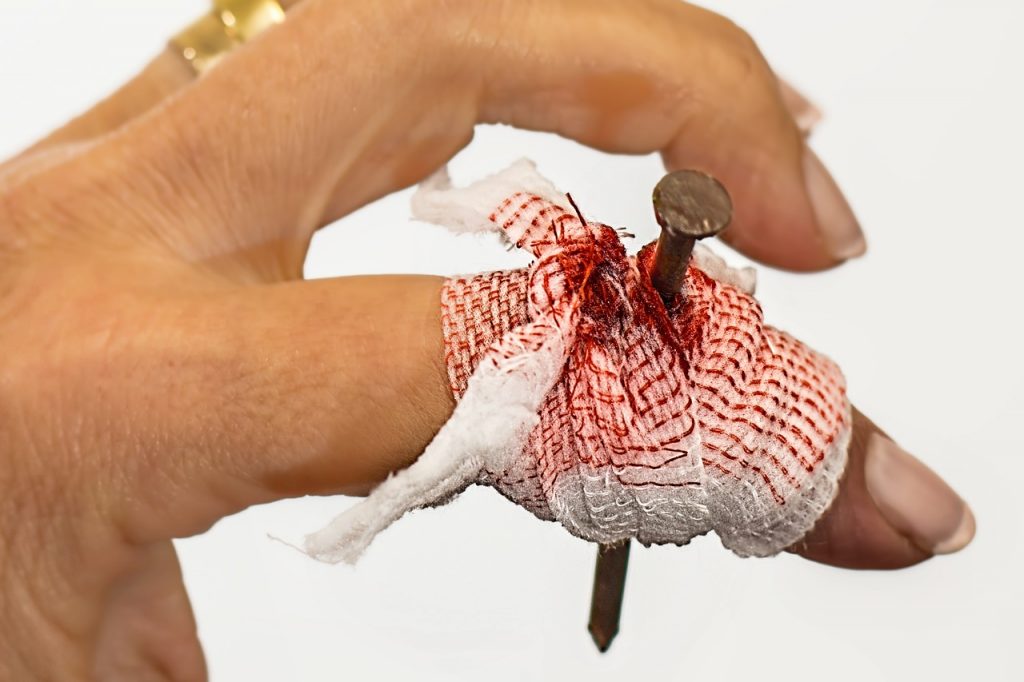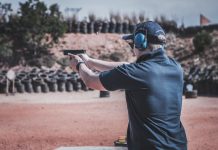In an unpredictable world where emergencies and unforeseen circumstances can strike at any moment, being equipped with basic training in essential skills can be the difference between life and death. By investing time and effort into learning fundamental skills, you can empower yourself with the ability to navigate through perilous situations and potentially save lives, including your own. Here are some of them.
CPR
Picture yourself at a family gathering, surrounded by loved ones, when suddenly your uncle collapses to the ground, clutching his chest in agony. Panic fills the air as everyone stands frozen, unsure of what to do. But you, equipped with the basic skill of cardiopulmonary resuscitation (CPR), take charge of the situation. Going through some basic first aid training will ensure you can keep the person alive until help arrives. Your knowledge of CPR becomes a beacon of hope, bridging the gap between a potential tragedy and a life saved.

Cardiopulmonary resuscitation (CPR), and other first-aid skills and tools are essential life-saving techniques performed during emergency situations when an individual’s heart has stopped beating or they have stopped breathing. It involves a combination of chest compressions, to manually pump blood throughout the body, and rescue breaths, to provide oxygen to the lungs. CPR aims to maintain blood circulation and oxygen supply to vital organs until professional medical help arrives.
Swimming
Swimming skills are an invaluable asset when it comes to saving lives. In water-related emergencies, such as drowning incidents or unexpected submersions, knowing how to swim can mean the difference between life and death. By having the ability to maneuver through the water with ease, you can swiftly reach individuals in distress and provide the necessary support until help arrives. Whether it’s a crowded beach, a swimming pool, or a natural body of water, the confidence and competence that come with swimming skills empower you to take immediate action and potentially save lives.
Drowning is a leading cause of accidental death worldwide, especially among children. However, individuals with swimming skills have a significantly higher chance of surviving water-related accidents. By being able to swim proficiently, you can keep yourself afloat and navigate toward safety. Moreover, in situations where others are struggling, your ability to swim allows you to extend a helping hand, providing critical support and preventing potential tragedies.
Basic Self-defense
Knowing how to fight back is a vital asset that can save lives in critical situations. Here are some popular arts:
- Krav Maga
- Brazilian Jiu-Jitsu
- Boxing
- Mau Thai
- Taekwondo
- Judo
- Wing Chun
- Hapkido
- Aikido
By employing fundamental techniques such as strikes, blocks, and evasion maneuvers, you can create a window of opportunity to protect yourself and escape the danger. This knowledge equips you with the tools to defend against physical threats, potentially preventing serious injuries or even loss of life.
The impact of basic self-defense extends beyond personal safety. When witnessing an act of aggression or harassment, understanding basic self-defense empowers you to intervene and protect others. With the ability to apply defensive tactics and diffuse the situation, you become a valuable force in preventing further harm.
Fire Safety
Fire safety skills are essential for preserving lives in the face of a fire. Imagine finding yourself in a situation where a fire breaks out in your home. With your knowledge, you remain calm and swiftly implement your evacuation plan. You guide yourself and others to safety through designated escape routes, ensuring everyone’s well-being. By understanding fire safety protocols, you minimize the risks and potentially save lives by acting decisively in such critical moments.
Furthermore, fire safety skills enable you to assist others who may be in immediate danger during a fire emergency. Whether it’s guiding individuals with impaired mobility to the nearest exit or helping others remain calm and focused amidst the chaos, your knowledge allows you to provide crucial support. By utilizing your fire safety skills, you become a valuable aid in protecting lives, ensuring that everyone has the best chance of escaping the fire unharmed.
Wilderness Survival
Knowing wilderness survival skills can be a lifesaver in situations where you find yourself in remote or challenging environments. With the ability to find or build shelter, locate water sources, and navigate using natural signs, you increase your chances of survival and potentially save your life.
For example, in case of an injury, you can apply appropriate medical techniques, stabilizing the injured person, and providing necessary care until professional help arrives, you become an essential link in their survival. Additionally, possessing wilderness survival skills enables you to anticipate and mitigate potential hazards. Your knowledge of identifying poisonous plants, avoiding dangerous wildlife encounters, and practicing proper food and water hygiene can prevent life-threatening situations.
Basic Navigation
Basic navigation skills have the potential to save lives in various scenarios where getting lost or disoriented could lead to dangerous situations. Imagine you’re on a hiking trip with a group when an unexpected event causes you to become separated from the others. By having a solid foundation in navigation skills, you can confidently read maps, use a compass, and understand landmarks to find your way back or reach a safe location. Your ability reduces the risk of getting lost for an extended period, ensuring your own survival and potentially enabling you to assist others who may be in need.
Furthermore, this knowledge enables you to assess and navigate through challenging terrains or adverse weather conditions. Whether you’re crossing unfamiliar landscapes, traversing water bodies, or moving through dense forests, your ability to interpret topographic features and orient yourself allows you to choose safe and efficient routes.
Emergency Communication
By having strong emergency communication skills, you can quickly and accurately relay vital details to emergency responders, such as the nature of the situation, the location of the incident, and the number of individuals involved. This timely and accurate exchange of information enables personnel to respond promptly and provide appropriate assistance, potentially saving lives.
Furthermore, emergency communication skills facilitate effective coordination and collaboration among individuals in emergency situations. Being able to communicate clearly and assertively within a group allows for the dissemination of important instructions, the allocation of tasks, and the sharing of vital information. In high-stress scenarios, effective communication becomes a critical factor in ensuring everyone’s safety and minimizing the risk of further harm.

Whether it’s CPR, swimming, self-defense, fire safety, wilderness survival, navigation, or emergency communication, each skill has the potential to be a crucial lifeline in critical situations. By equipping yourself with these foundational abilities, you empower yourself to respond swiftly, protect others, and navigate through emergencies with confidence. Make sure to educate yourself to gain the necessary knowledge for any future situation!












